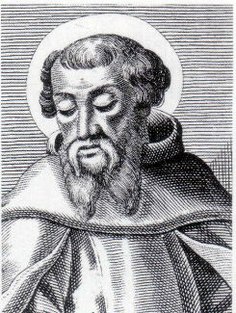| Part of a series on the |
| Philosophy of religion |
|---|
| Philosophy of religion article index |

| Part of a series on |
| Theodicy |
|---|
The Irenaean theodicy is a Christian theodicy (a response to the problem of evil). It defends the probability of an omnipotent and omnibenevolent (all-powerful and perfectly loving) God in the face of evidence of evil in the world. Numerous variations of theodicy have been proposed which all maintain that, while evil exists, God is either not responsible for creating evil, or he is not guilty for creating evil. Typically, the Irenaean theodicy asserts that the world is the best of all possible worlds because it allows humans to fully develop. Most versions of the Irenaean theodicy propose that creation is incomplete, as humans are not yet fully developed, and experiencing evil and suffering is necessary for such development.
Second-century theologian and philosopher Irenaeus, after whom the theodicy is named, proposed a two-stage creation process in which humans require free will and the experience of evil to develop. Another early Christian theologian, Origen, presented a response to the problem of evil which cast the world as a schoolroom or hospital for the soul; theologian Mark Scott has argued that Origen, rather than Irenaeus, ought to be considered the father of this kind of theodicy. Friedrich Schleiermacher argued in the nineteenth century that God must necessarily create flawlessly, so this world must be the best possible world because it allows God's purposes to be naturally fulfilled. In 1966, philosopher John Hick discussed the similarities of the preceding theodicies, calling them all "Irenaean". He supported the view that creation is incomplete and argued that the world is best placed for the full moral development of humans, as it presents genuine moral choices. British philosopher Richard Swinburne proposed that, to make a free moral choice, humans must have experience of the consequences of their own actions and that natural evil must exist to provide such choices.
The development of process theology has challenged the Irenaean tradition by teaching that God using suffering for his own ends would be immoral. Twentieth-century philosopher Alvin Plantinga's freewill defense argues that, while this may be the best world God could have created, God's options were limited by the need to allow freewill. Alvin Plantinga's ultimate response to the problem of evil is that it is not a problem that can be solved. Christians simply cannot claim to know the answer to the "Why?” of suffering and evil. Plantinga stresses that this is why he does not proffer a theodicy but only a defense of theistic belief as rational in the face of unanswered questions.[1] D. Z. Phillips and Fyodor Dostoyevsky challenged the instrumental use of suffering, suggesting that love cannot be expressed through suffering. However, Dostoyevsky also states that the beauty of love is evident, in that love can continue to grow, withstand and overcome even the most evil acts. Michael Tooley argued that the magnitude of suffering is excessive and that, in some cases, cannot lead to moral development. French theologian Henri Blocher criticised Hick's universalism, arguing that such a view negates free will, which was similarly important to the theodicy.
- ^ Plantinga, Alvin (6 December 2012). Tomberlin, H.; Tomberlin, James E.; van Inwagen, P. (eds.). Alvin Plantinga "Self Profile". Springer Netherlands. p. 33. ISBN 9789400952232.
